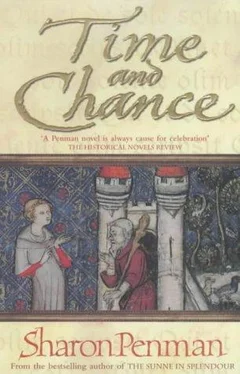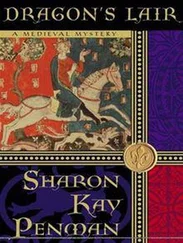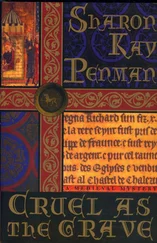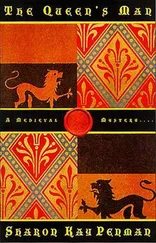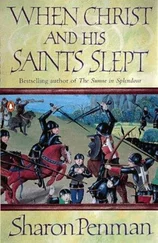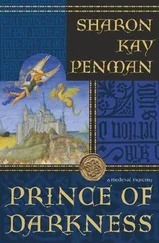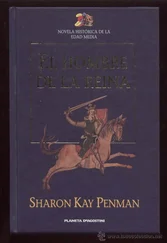Sharon Penman - Time and Chance
Здесь есть возможность читать онлайн «Sharon Penman - Time and Chance» весь текст электронной книги совершенно бесплатно (целиком полную версию без сокращений). В некоторых случаях можно слушать аудио, скачать через торрент в формате fb2 и присутствует краткое содержание. Жанр: Исторические приключения, на английском языке. Описание произведения, (предисловие) а так же отзывы посетителей доступны на портале библиотеки ЛибКат.
- Название:Time and Chance
- Автор:
- Жанр:
- Год:неизвестен
- ISBN:нет данных
- Рейтинг книги:4 / 5. Голосов: 1
-
Избранное:Добавить в избранное
- Отзывы:
-
Ваша оценка:
- 80
- 1
- 2
- 3
- 4
- 5
Time and Chance: краткое содержание, описание и аннотация
Предлагаем к чтению аннотацию, описание, краткое содержание или предисловие (зависит от того, что написал сам автор книги «Time and Chance»). Если вы не нашли необходимую информацию о книге — напишите в комментариях, мы постараемся отыскать её.
Time and Chance — читать онлайн бесплатно полную книгу (весь текст) целиком
Ниже представлен текст книги, разбитый по страницам. Система сохранения места последней прочитанной страницы, позволяет с удобством читать онлайн бесплатно книгу «Time and Chance», без необходимости каждый раз заново искать на чём Вы остановились. Поставьте закладку, и сможете в любой момент перейти на страницу, на которой закончили чтение.
Интервал:
Закладка:
Henry yielded, then, with a grin. “I see these past six years have not robbed you of any of your stubbornness. If you must hear me say it, so be it. The longer I can stave off the Church’s verdict, the less likely it will be an excommunication or interdict and the more likely they’ll offer terms I can live with.”
Ranulf raised his cup in a fond, sardonic salute. “Now that I think of it, there is a question I want to ask you. Rumors about the Canterbury killers have taken root in every alehouse, every marketplace, and are sprouting faster than the hardiest weeds. I’ve been told that they have gone on Crusade to make amends, that you’ve dispatched men to hunt them down without mercy, that in the months since the killing, they’ve all begun to sicken, stricken by unknown maladies that have no cure. What is the truth of it, Harry?”
“The last I heard, they had gone to ground at Hugh de Morville’s castle at Knaresborough in Yorkshire, where I daresay they are hoping to ride out the storm.”
“But you have not moved against them?”
“No,” Henry said, frowning into the depths of his wine cup. “They thought they were doing my bidding, Ranulf. Even though they wounded me almost as grievously as they did Thomas, they were arrows launched from my bow, men who were acting upon my own angry, imprudent words. I admit that I have been known to dissemble at times, for that is an essential aspect of statecraft. But I am not a hypocrite.”
“No,” Ranulf agreed, although not as wholeheartedly as Henry would have liked. It was not that Ranulf disbelieved him. But life had taught him that men learned to justify themselves almost as soon as they learned to talk, and he suspected that kings had more need than most to vindicate their acts. “What do you think will happen to them, Harry?”
Henry shrugged again. “If they are wise, they’ll confess their sins, repent, and throw themselves upon the mercy of the Church. Of course the only penalties they’d face are spiritual. The ultimate absurdity of this, Ranulf, is that their crime is one the Church would deny me the right to punish. Thomas insisted unto his final breath that only the Church could judge the offenses of men in holy orders and any crimes committed against them.”
“I do not imagine Thomas would appreciate the irony of that,” Ranulf said dryly. “From what I’ve heard, he cast off humor when he put on the sacred pallium.”
“For certes, he did when he donned that wretched hair shirt,” Henry agreed, sounding more perplexed than sarcastic. He’d been shaken by the revelation of Becket’s secret mortification, and months later, he still could not reconcile that man with the one he’d known-or thought he’d known. He waved Ranulf off when his uncle would have refilled his cup, for wine was not the key to the enigma that was Thomas Becket.
“I thought he was the hypocrite,” he admitted. “In that, I was wrong. No man would wear a filthy, lice-ridden garment next to his private parts if he did not believe utterly in the sanctity of his cause. The chafing alone must have driven him half-mad!” He smiled then, without much humor. “How could I have so misjudged him, Ranulf?”
Ranulf did not answer at once, for he understood the honor inherent in the question; he was likely the only man to whom his nephew could pose that query. “I think,” he said slowly, “that Hywel saw him with the clearest eye. He said once that Thomas reminded him of a chameleon, changing his color to reflect his surroundings.”
Henry raised his head, considering that. “Well,” he said, “if Hywel is right, the fault is still mine, then, for insisting he take the archbishopric. If I’d kept him as my chancellor, we both might have fared better.”
“I’d heard that the Pope has agreed to absolve the Bishops of London and Salisbury. But what of the Archbishop of York? Does his suspension still hold?”
“For now it does. I expect, though, that he’ll eventually get it lifted.”
“And the de Brocs? What of them?”
That was a question Henry preferred not to answer. He didn’t doubt that they had been implicated in Becket’s murder, but he still had need of their services in Kent. He sought to divert Ranulf’s attention by changing the subject. “I do not suppose you’ve heard about the latest misfortune to befall Gilbert Foliot? He took ill this past August, was burning with fever until they began to despair of his life. The Bishop of Salisbury had come to give him comfort, and he kept urging Gilbert to let him pray to Thomas for deliverance. Gilbert finally agreed, his fever soon broke, and within a few days, he was well on the road to recovery.”
Ranulf grinned. “Was his misfortune that he was so gravely ill.. or that he may have owed his recovery to Thomas Becket?”
“Both, I suspect,” Henry said and laughed. “Poor Gilbert. He is truly torn between his dislike of the man and his awe of the martyr!”
It was quiet for a time after that, but it was a companionable quiet, bred of intimacy and affection. Henry absentmindedly scratched the ears of one of his wolfhounds and Ranulf smothered a yawn.
“I think I shall have to be off to bed,” he said. “These old bones of mine need more rest than yours.”
Henry glanced up, then nodded. “Ranulf… do you think Thomas Becket was a saint?”
“I do not know, Harry.”
“There is much talk of miracles at his tomb and the like. But surely that is not proof? There are fools aplenty who are credulous enough to believe any nonsense that reaches their ears.”
“I’ve heard of these miracles,” Ranulf acknowledged, “and in truth, I do not know what to make of them. To us, Thomas was a mortal man, one like any other, with his share of flaws and follies. It is difficult to envision him a saint.”
“Well nigh impossible,” Henry commented trenchantly. “Did I ever tell you what he was reported to have said about the expulsion of his kinfolk and servants? When he was told that some of them were on their way to join him at Pontigny, he replied that as long as their souls were saved, he cared not if they were flayed to the bone. How saintly does that sound?”
“Well… not very. But I suppose it could be argued that saints care only for the spiritual and not the corporeal.”
“Do you believe that?” Henry demanded and Ranulf shook his head, smiling.
“No, not really. I cannot answer your question, Harry, doubt that anyone can. I do know, though, that saints are not judged like ordinary men. That is, after all, what makes them saints.”
Henry drained the last of his wine, then looked up at Ranulf, his expression an odd one, at once skeptical and regretful. “Saint or not,” he conceded, “Thomas got the last word for certes.”
Heavy rains and westerly winds continued to keep Henry at Pembroke. Another week went by. Roger departed, returning to Normandy to await the arrival of the papal legates. Rhys ap Gruffydd arrived and Henry agreed to an elaborate banquet, as much to banish boredom as to honor Rhys.
Seated at the high table with Henry, Rhys, Rainald, the Earls of Pembroke and Hertford, and the Bishop of St David’s, Ranulf drank the wine offered and ate the venison and fresh pike and pheasant, but he was not really enjoying himself. He missed Rhiannon, missed his children, missed Hywel and the life he’d lost at Trefriw. He was glad that he and his nephew had made peace; their breach was a wound that had never fully healed. Yet even his pleasure was diluted these days and left an aftertaste.
When the meal was done and the trestle tables cleared away for the entertainment, Henry signaled for silence. “Did you know, Uncle, that Hywel’s foster brother has written a tribute to him?”
Ranulf shook his head, glancing from Henry to Rhys, back to Henry again. The Welsh prince’s bard had come forward, claiming the center of attention and waiting until his audience quieted. “This elegy is not mine, although I wish it were. The poet is Peryf ap Cedifor, and he writes of what he saw, what he felt, what he lost at Pentraeth. Peryf agreed that I could sing his words, share his grief, and it is my great honor to present The Killing of Hywel.
Читать дальшеИнтервал:
Закладка:
Похожие книги на «Time and Chance»
Представляем Вашему вниманию похожие книги на «Time and Chance» списком для выбора. Мы отобрали схожую по названию и смыслу литературу в надежде предоставить читателям больше вариантов отыскать новые, интересные, ещё непрочитанные произведения.
Обсуждение, отзывы о книге «Time and Chance» и просто собственные мнения читателей. Оставьте ваши комментарии, напишите, что Вы думаете о произведении, его смысле или главных героях. Укажите что конкретно понравилось, а что нет, и почему Вы так считаете.
